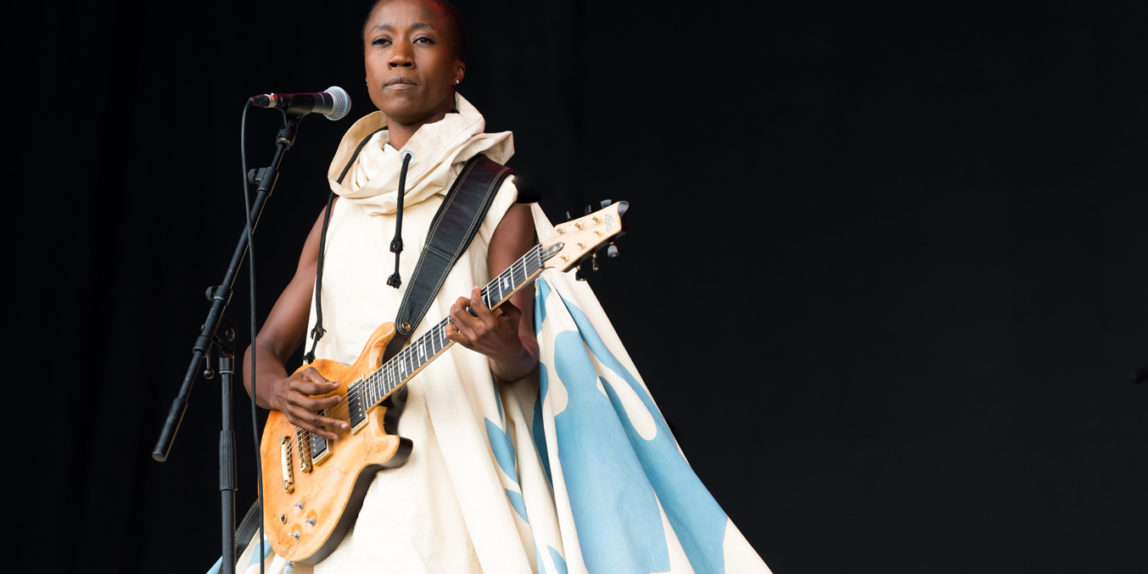Rokia Traoré is an incredibly musical Malian singer, songwriter, and guitarist who transcends genre with her art.
She is a member of the Bambara ethnic group, a culture that has deep traditions of music performance and oral story telling (specifically called griot performance). Despite this fact, Traoré found American rock music to be more accessible to her while growing up.
Traoré’s father was a diplomat and her family holds a noble title. Members of her social class are generally discouraged from performing as musicians. Traditionally, it is the members of the djeli caste that are tasked with being musicians in Malian society. Nevertheless, she began to perform publicly as university student in Bamako.
Rokia in her own words:
“I started learning about music; I was not supposed to do so and was criticized within my social environment. It was therefore more natural for me and less controversial for my entourage to take up playing the guitar, writing texts in French and English. Drawing my own artistic path I avoided taking any role that would normally be exclusively pursued by a member of the djeli caste. Rock ‘n’ roll was more accessible to me than playing at weddings or christening ceremonies where young djelis learn alongside their parents, to sing the traditional music repertoire.”
You can hear her musical history reflected in her numerous albums. Her first work that I was introduced to was her record Beautiful Africa. Released in 2013, Traoré translates rock music through a Malian perspective, singing in both Bamara and French and playing rhythmic lines on her guitar that interplay with kora and percussion.
Traoré is an influential advocate for both women’s voices and the arts in Mali. She is affiliated with the Foundation Pasarelle, a project that aims to support musicians and artists from Mali with record deals, artist residencies, and intentional community-making.
Rokia’s current focus is her Dream Mandé – Djata project. Her aim is to invoke the griot tradition while allowing for musical modernizations. The text is told in French and English and, like a traditional griot performance, classical songs of the Mandingo epic history act as transitional material during breaks in the narrative.
Rokia Traoré is returning to the Mali tradition. One she was not actively allowed to study while growing up. Despite discouragement, Traoré has ascended as an artist and influencer. Her voice belongs.
In her own words:
“To exist as an artist, I had to take a great creative detour to gain a few years of experience in the practice of a musical style that I invented for myself, taking advantage of any breach or small window of tolerance that celebrated modernity within Mali’s highly traditionalist society. For years my goal was and still is, to expand the scope of freedom for my artistic work.”
If you have been following my podcast discussion, this is a powerful conclusion about the influence of art: How can art affect communities and individuals? Art can expand the scope of freedom.
Take a listen to what freedom sounds like!
